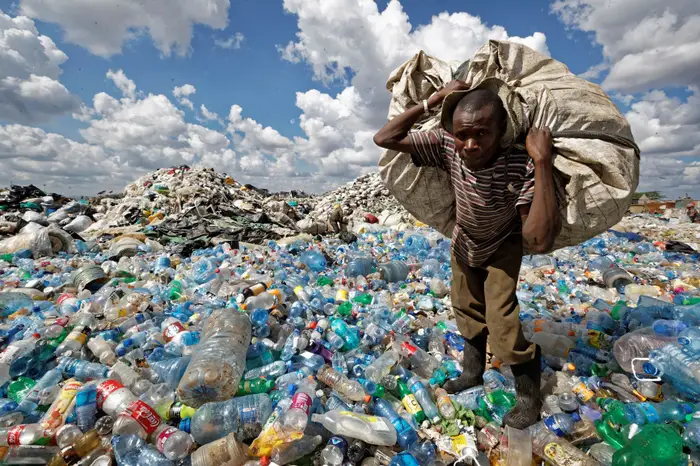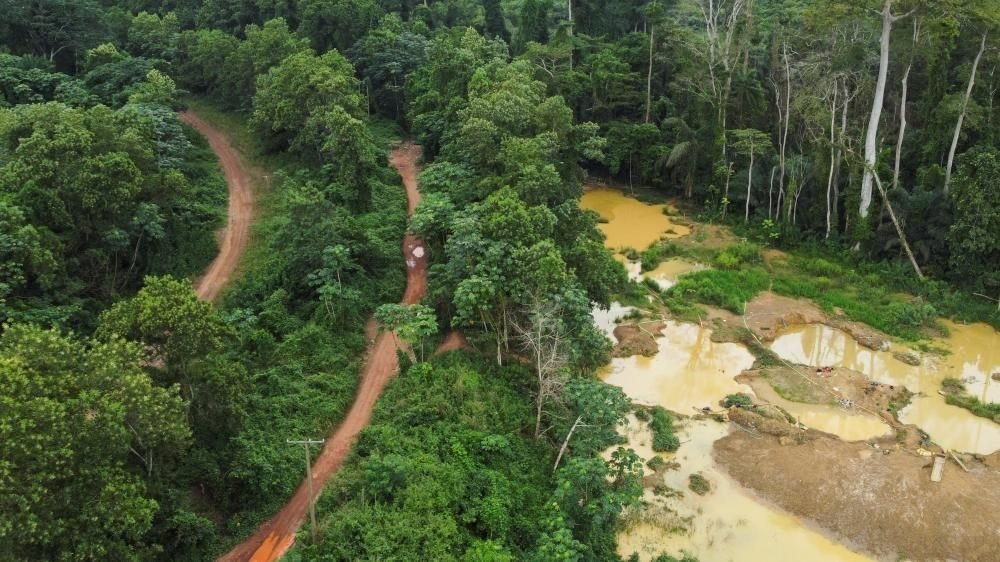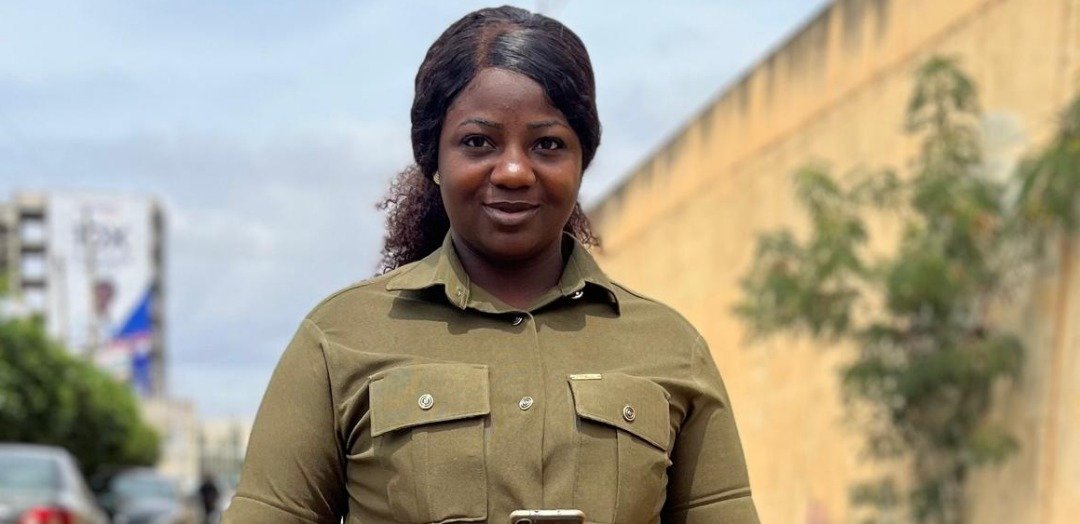The call for a purposeful, long-term policy shift towards environmental sustainability has gained prominence as Ghana joins the rest of the world in celebrating this year’s World Environment Day, especially in local communities that are most affected by the results of inadequate environmental stewardship.
The annual June 5 celebration, which is observed worldwide, is a stark reminder to step up efforts to protect the environment. The theme for this year, “Ending Plastic Pollution,” is particularly pertinent to Ghana’s continuous battles with environmental deterioration, specifically pollution from illicit mining operations and plastic waste.
In the Ayawaso West Municipality of the Greater Accra Region, the National Disaster Management Organisation (NADMO) has seized the moment to urge the government to take bold steps in reversing the country’s worrying environmental trends.
Speaking in an interview with the Vaultz News, Madam Aldrina Beatrice Asante, the Head of Operations for NADMO’s Westland Zone, lamented the alarming rate at which polythene waste is engulfing Accra and other urban centres, creating sanitation nightmares and posing serious health risks to citizens.

She emphasised that the growing menace of polythene bags must be addressed through clear legislative action.
According to her, the government should consider banning polythene bags and replacing them with biodegradable alternatives like paper bags and traditional food packaging methods using plantain and “waakye” leaves.
“I support the use of paper bags. Because paper decomposes easily as compared to rubber. So I am in support of using paper. I think we need to go back to the way we used to package food in the olden days.
“Like using the plantain leaves. For some time, I have seen those people setting up local bars using plantain leaves to wrap banku and other stuff to serve at parties and weddings”.
Madam Aldrina Beatrice Asante, the Head of Operations for NADMO’s Westland Zone
For Madam Asante, tackling plastic pollution is not just about replacing materials but also about reimagining consumer habits and state policies.
She contended that the government must back these shifts with a ban on polythene usage, and more importantly, provide affordable and widely accessible biodegradable alternatives.
Her concerns reflect the global campaign message for this year’s World Environment Day: the need to reduce the excessive use of plastics, especially single-use plastics, which continue to endanger marine life, pollute rivers, and pose long-term health hazards to humans.
‘Ceremonial National Tree Planting’
Beyond plastic pollution, Madam Asante also raised concerns about the ceremonial nature of government-led tree planting campaigns, which she believes lack follow-through.
“When we plant the trees, we don’t do follow-ups. Like we don’t go and check whether it has been watered, whether it is growing or not. We just plant it and leave it like that. So, each year we keep planting, but we don’t see any results from it”.
Madam Aldrina Beatrice Asante, the Head of Operations for NADMO’s Westland Zone
She recommended that teams involved in planting be tasked with post-planting monitoring, including watering, protecting the saplings with cages, and ensuring proper maintenance.

She added that government-led tree planting exercises must be redesigned to focus on sustainability rather than optics. According to her, civic education around environmental protection must be scaled up to awaken a sense of responsibility among Ghanaians. “Trees are not just planted and forgotten. They need to be taken care of,” she stressed.
Curbing Illegal Mining
Another major concern she raised was the environmental devastation caused by illegal mining, commonly known as galamsey. Ghana has, over the past decade, lost substantial forest cover and witnessed severe pollution of water bodies due to these unregulated mining activities.
While successive governments have committed resources and security operations to fight galamsey, Madam Asante believes that real change will only come when the approach is reoriented towards community engagement, youth empowerment, and education.

She argued that many of the youth involved in galamsey are driven by unemployment and the lack of viable alternatives. Instead of pursuing punitive measures alone, she urged the government to create job opportunities and retraining programmes within mining communities.
“If we keep sacking the youth without providing alternatives, they’ll go back to it. We need to engage them, give them jobs, and educate them about the environmental dangers of galamsey”.
Madam Aldrina Beatrice Asante, the Head of Operations for NADMO’s Westland Zone
Indeed, Ghana’s environmental challenges are multidimensional, ranging from poor waste management, deforestation, and plastic pollution to the disastrous effects of illegal mining. World Environment Day presents the perfect opportunity not only for reflection but for decisive action.
The views expressed by Madam Aldrina Beatrice Asante mirror the frustrations and aspirations of many Ghanaians who wish to see real commitment, not just rhetoric, in the battle to protect the country’s natural heritage.
As the country reflects on the 2025 World Environment Day theme, “Ending Plastic Pollution,” the government is being challenged to step up with policies that are not only sustainable but also enforceable.
Banning polythene bags, as earlier declared by President Mahama, in addition to promoting biodegradable alternatives, ensuring proper monitoring of environmental campaigns, and empowering communities economically, could be the turning points Ghana urgently needs.
If leaders can seize the moment, future generations may yet inherit an environment worth living in. But if the current trend continues, the price, environmentally, socially, and economically, could be devastating.
READ ALSO: President Mahama Signs Energy Levy Act, Commits to Fixing Power Sector



















